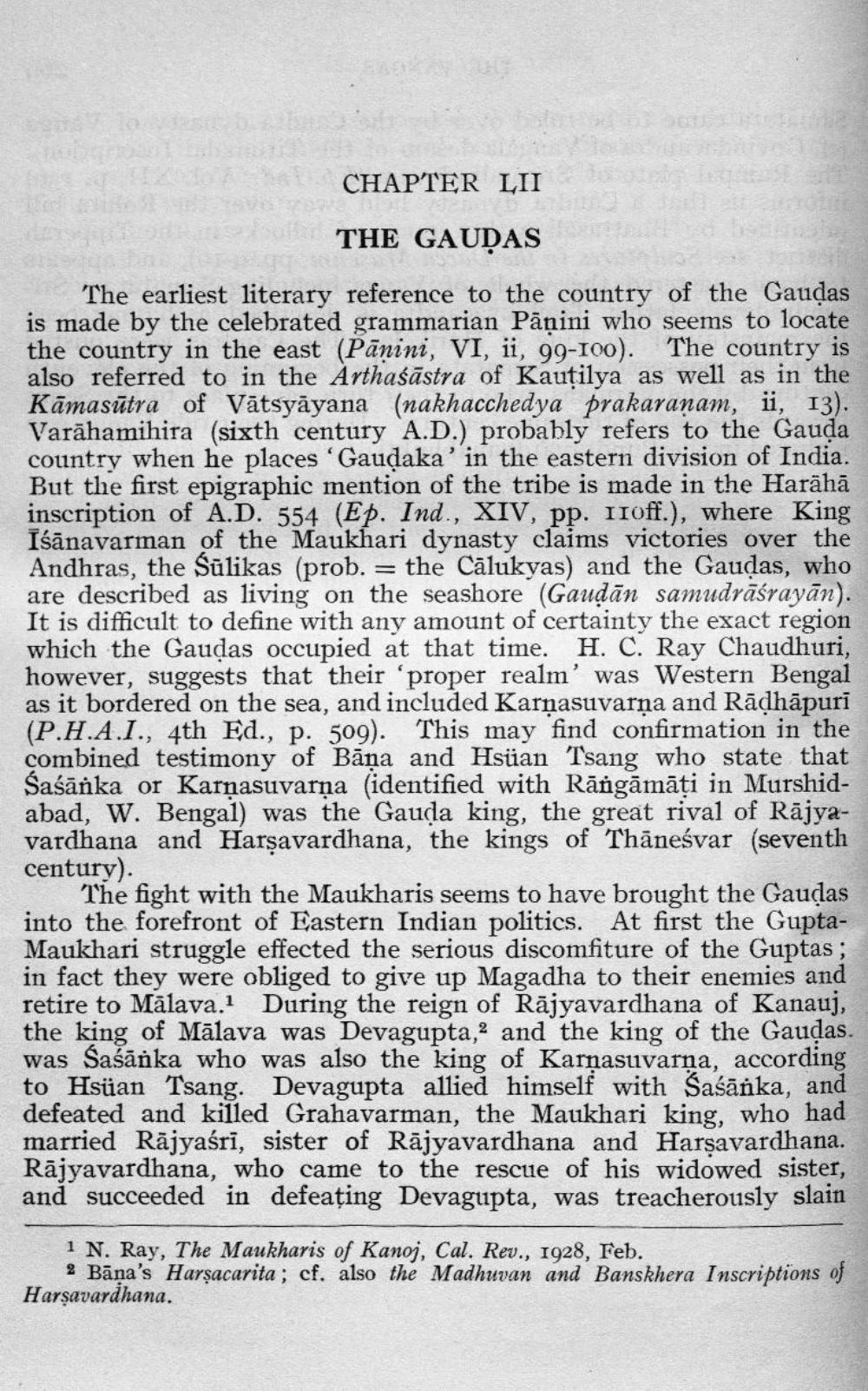________________
CHAPTER LII
THE GAUDAS
The earliest literary reference to the country of the Gaudas is made by the celebrated grammarian Panini who seems to locate the country in the east (Panini, VI, ii, 99-100). The country is also referred to in the Arthaśāstra of Kautilya as well as in the Kāmasūtra of Vātsyāyana (nakhacchedya prakaranam, ii, 13). Varāhamihira (sixth century A.D.) probably refers to the Gauda country when he places Gaudaka' in the eastern division of India. But the first epigraphic mention of the tribe is made in the Harāhā inscription of A.D. 554 (Ep. Ind., XIV, pp. IIoff.), where King Iśānavarman of the Maukhari dynasty claims victories over the Andhras, the Sūlikas (prob. = the Cālukyas) and the Gaudas, who are described as living on the seashore (Gaudān samudrāśrayān). It is difficult to define with any amount of certainty the exact region which the Gaudas occupied at that time. H. C. Ray Chaudhuri, however, suggests that their proper realm' was Western Bengal as it bordered on the sea, and included Karnasuvarna and Rādhāpuri (P.H.A.I., 4th Ed., p. 509). This may find confirmation in the combined testimony of Bāņa and Hsüan Tsang who state that Saśānka or Karnasuvarna (identified with Rārgāmāti in Murshidabad, W. Bengal) was the Gauda king, the great rival of Rājyavardhana and Harşavardhana, the kings of Thāneśvar (seventh century).
The fight with the Maukharis seems to have brought the Gaudas into the forefront of Eastern Indian politics. At first the GuptaMaukhari struggle effected the serious discomfiture of the Guptas; in fact they were obliged to give up Magadha to their enemies and retire to Málava.1 During the reign of Rajyavardhana of Kanauj, the king of Mālava was Devagupta,2 and the king of the Gaudas. was Saśānka who was also the king of Karņasuvarna, according to Hsüan Tsang. Devagupta allied himself with Saśānka, and defeated and killed Grahavarman, the Maukhari king, who had married Rājyaśrī, sister of Rājyavardhana and Harsavardhana. Rājyavardhana, who came to the rescue of his widowed sister, and succeeded in defeațing Devagupta, was treacherously slain
I N. Ray, The Maukharis of Kanoj, Cal. Rev., 1928, Feb.
2 Bāna's Harşacarita; cf. also the Madhuvan and Banskhera Inscriptions of Harsavardhana.




